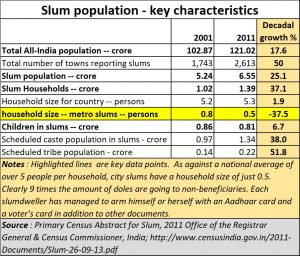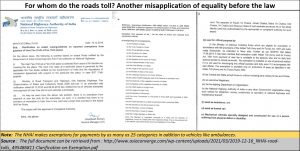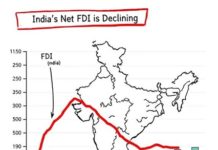https://www.freepressjournal.in/analysis/policy-watch-judiciary-3-india-forgets-the-spirit-behind-the-rule-of-law-makes-a-mockery-of-justice
Judiciary -3: Please don’t make a joke out of the rule of law
(All other articles in the Judiciary series can be found at http://www.asiaconverge.com/2021/03/the-judiciary-series/)
RN Bhaskar — March 11, 2021
The past two months were witness to a piquant situation. On the one hand you had the current government in Maharashtra struggling hard not to waive property taxes for slums and houses under 500 square feet. On the other was the BJP vociferously demanding a waiver of property taxes for slums (https://www.outlookindia.com/newsscroll/grant-property-tax-waiver-for-mumbai-homes-up-to-500-sqftcong/2005701).
Voting rights and vote banks
The fight was not for the heart of India, but for vote banks. That is when all morality is forgotten, all rules of equity abandoned. The political party was telling the migrant Bihari that he was stupid to pay house rent like  any law abiding citizen when he comes to Mumbai. He was wrong to stay six to a room, and observe housing rules legally. It was telling him that he should instead seek out a political leader, gather with a group under his leadership or guidance, grab land, squat there, and thus become part of a vote bank. It was telling him that he would get a free flat in the very same area as part of a resettlement scheme. And it was also assuring him of the possibility of more goopdies including the right not to pay property taxes in perpetuity.
any law abiding citizen when he comes to Mumbai. He was wrong to stay six to a room, and observe housing rules legally. It was telling him that he should instead seek out a political leader, gather with a group under his leadership or guidance, grab land, squat there, and thus become part of a vote bank. It was telling him that he would get a free flat in the very same area as part of a resettlement scheme. And it was also assuring him of the possibility of more goopdies including the right not to pay property taxes in perpetuity.
So where is the fight for justice, or equity or fair play? It is when you examine the political bonanza slums provide politicians and his nominee slum-lord that you begin to understand why values have ceased to matter. Take the table alongside. It shows how slums have reduced the size of each family to just 0.5 per household. In other words, on an average, each person in a slum shows himself or herself as part of two households.
This is because all benefits – subsidised electricity, water, gas cylinders and rations are given on the basis of each household. Hence, there is an advantage in showing an increase in the number of households. Hence the number of households in slums increased dramatically. (for more details visit http://www.asiaconverge.com/2020/03/coronavirus-slums-become-new-hotspots-ravage-cities/). Thus, the slums get ten times the entitlements than what they would have got legally. The additional entitlements are invariably shared by the authorities who are also in league with the slumlords and politicians.
The only way to stop this is by persuading the Election Commission (EC) and the courts to allow voting only from places where the voter has a legal residence. No, the citizen does not lose his or her voting right. The only clarification would be that the vote could be cast at the last place of legal residence.
Since slum dwellers (who have not yet been regularised – and that is a large and ever-increasing number) are squatters they do not have a legal address. The EC could therefore take away the biggest incentive politicians have in promoting slums. Without voting rights, slums lose their political bonanza. That would bring sanity back to urban areas. While one cannot undo what has already been done, one could at least stop further haemorhage of public land and finances.
That could explain why the government is now keen in persuading the EC to allow voting from everywhere – through remote voting and using blockchain technology (https://thewire.in/government/election-commission-national-voters-day-remote-voting). That would ensure several things. First, it would protect the voting rights of illegal squatters. Second, with bogus Aadhaar cards (http://www.asiaconverge.com/2020/11/aadhaar-pan-combined-through-article-139aa-threaten-banking-financial-integrity/) votes could now be cast votes from any territory where more ballots are required. It is one more that could rig the election and finance machinery for decades, if not forever.
The honest must suffer
The victims will (invariably) be honest tax payers, because it is their money that will be used for the additional funds to finance entitlements. It is their money that will be used to build new slum rehabilitation (SR) areas. The politicians will rub their hands with glee. The slum dwellers will continue to get their benefits against the promise of votes. In the casualty-ward will be the honest tax payer.
Now combine these rules with the issue of fake Aadhaar cards and the linking of Aadhaar to PAN cards, and you also get a mechanism which allows money laundering to the tune of Rs.15 lakh crore per annum (http://www.asiaconverge.com/2020/11/aadhaar-pan-combined-through-article-139aa-threaten-banking-financial-integrity/).
The fears are reinforced by numbers which suggest a GST collection gap of Rs.3 lakh crore as of January 2021 (http://www.asiaconverge.com/2021/02/budget-2021-hurts-both-banking-and-atma-nirbhar-bharat/).
FASTags ignore the rule book
A similar disregard for the rule of law can be observed in the way the FASTag has got implemented. After  several years of years of constant assurance that the introduction of FASTags, the RFID based technology will automatically debit toll charges from each vehicle that passes through toll gates. Now we learn that there are at least 25 categories of people will will be exempted from paying toll charges (https://www.moneylife.in/article/fastag-commoners-are-denied-benefit-of-return-journey-discounts-while-vips-grab-exempted-rfid-tags/63020.html).
several years of years of constant assurance that the introduction of FASTags, the RFID based technology will automatically debit toll charges from each vehicle that passes through toll gates. Now we learn that there are at least 25 categories of people will will be exempted from paying toll charges (https://www.moneylife.in/article/fastag-commoners-are-denied-benefit-of-return-journey-discounts-while-vips-grab-exempted-rfid-tags/63020.html).
This is what was feared all along – right since 2017 — that the RFID technology was being delayed to ensure that the privileged could be exempted from paying (http://www.asiaconverge.com/2017/10/for-whom-the-roads-toll/). Well, the rush for exemption RFID tags has begun. Even though the NHAI notification of 16 December 2019 (2019-12-16_NHAI-road-tolls_495486811-Clarification-on-Exemption) states that all must pay, there is a paragraph (and a two page attachment) which states: “Ministry of Road Transport and Highways . . . . . has notified the list of vehicles exempted from payment of user fee (list of such vehicles is enclosed)”.
Exempting VIP vehicles in the past was justifiable. They possibly did not want to waste precious time which could be used in the service of the nation by waiting in queues to hand over cash. That was inconvenient.
But why should the exemption be allowed now? There is no waiting, no cash payout time lost, through the use of FASTags. Why shouldn’t each department pay? If required, the amount could be refunded by a simple computer entry. And the biggest benefit for the country is that such payments are now be visible to the audit team. It can advise the government on which vehicle is possibly being misused by the VIP’s staff. It brings in accountability and transparency. It is after all the tax payers’ money, and there ought to be accountability for such movement through toll-gates. This is particularly true of ambulances and hearses which are known (through anecdotal news items) for ferrying people through toll gates at a small fee.
Why should the same rule not be applicable to all? Why should some offices be exempted? This penchant for exemptions is what has made India a porous state – each senior officer wants to be exempted from payment, from security frisking, and even from being charge-sheeted for crimes of commission or omission (more on that later). It just points to an inherent desire on the part of the powerful to be exempt from laws. That is a very dangerous practice.
Disdain for the law
This exemption goes a bit further when government and quasi government officers are protected from  prosecution and from being charge-sheeted till approved by the person’s senior officers. In reality, no such approval is granted, unless the courts intervene, or the bigwigs find the person inconvenient.
prosecution and from being charge-sheeted till approved by the person’s senior officers. In reality, no such approval is granted, unless the courts intervene, or the bigwigs find the person inconvenient.
Such exemption from investigation makes petty officials thumb a snook at laws. A very good example is a personal case where the officials of the MCGM have refused to pay heed to repeated complaints about illegal construction. The complaint was made in February 2018, and to date no action has apparently been taken.
To be fair, this corruption is more with petty officials than with senior officials. Each complaint to the municipal commissioner is routinely passed on to the local deputy commissioner and his ward officers. They are asked to file a report. There is no information about any report being filed. And quite possibly no chargesheet — for not taking the required action — has been drawn up either.
Even after more than 30 letters over the past three years, the illegal construction stays intact (see image alongside).
Instead, corrupt officials at the local level, have permitted even more illegal constructions that are visible to the naked eye from the road itself. This area is rife with instances of rental rooms being created illegally, public gardens being usurped by municipal employees for the use of privately run child-care-nurseries, construction of residences on playgrounds, and the like.
One reason why the MCGM faces a finance crunch is because much of the revenue is nibbled away by these lower level officers. Their income is GST-free and even tax free. Result? Common, law-abiding citizens have to pay a bit more, and suffer worse town planning than would otherwise be possible. The greed and consequent skimming appear to become larger with each passing year.
The illegal construction about which a complaint has been pending for three years and several written complaints is proof of the MCGM’s caprice. Rules are invoked on a very selective basis. Therefore, while demolitions against inconvenient people like Kangana Ranaut are stoutly defended, small individuals do not get heard at all.
Ideally, there should be a provision enabling common citizens to file complaints with the police and the anti-corruption offices even for not carrying out statutory obligations in defiance of rules. But such a provision does not exist. So, corruption continues. You can pay the local civic inspector and continue with illegalities, and even promote more illegalities. The system needs money, and laws can wait till greed is satisfied.
Framing absurd laws
It is this ill-gotten sense of power that has caused policy makers resort to framing rules that are against the very Constitution, and even free speech. One such ruling is that which seeks to ‘regulate’ social media. A very good critique of that law can be found here (https://wap.business-standard.com/article/opinion/big-brother-syndrome-121030101359_1.html).
The rulingis actually a bit myopic. Any technology savvy person can tell you that a law that seeks to identify the original source of the message can be left frustrated. For instance – and this is just one of several ways – a prankster can choose to infect thousands of computers with malware – through email, WhatsAPP, Instagram messaging or an intriguing website. The malware is ’instructed’ to lie dormant on the PC or phone, till the right activation codes are provided.
Then the toxic messages are sent out — through machines using spoofed IP addresses — to the infected PCs and phones with the required activation codes. You will suddenly have thousands of devices in India sending out the messages. So who is the original source? Can the government or its agencies find out? When you bring in a stupid law, you will get workarounds that will drive people nuts.
One key rule of law-making is not to introduce rules that tempt people to think of illegal ways of doing things. The new rules for muzzling social media could do just that. They will dare an army of pranksters who will drive the administration nuts. Such laws will bind down people who are god-fearing and law-abiding, and proliferate those who are not.
That is something the government has yet to learn and take cognizance of.
Instead, just look at the way the US deals with fake-news. Remember how – some years ago – a news item went viral? It talked about how the moon-walk by Neil Armstrong on the Apollo mission was a fake. There were some clever (and convincing) reasons explaining why the moon-walk photograph was a piece of fiction. It also said that the US was lying. The US did not ban the news item. Instead, NASA put up a clarification debunking all the points raised by the mail. It was taken up by almost all news agencies, even Wikipedia (https://en.wikipedia.org/wiki/Moon_landing_conspiracy_theories). The story was debunked without any arrests or the threat to hurl bolts of lightning on wrongdoers. It took some time, but, today, everyone knows that the news item was a hoax.
When a country is sure about itself, it uses sensible ways to deal with fake news, even when the country is called a liar. So how does one categorise the new moves by the law ministry?
One more issue. Calling people Khalistanis, or tukde-tukde gang, or tablighis won’t help. All the tablighis have been freed. The only ones who actually sought to make tude-tukde (pieces) of India turned out to be fringe elements like the gau rakshak (cow protecting) vigilantes. They were finally reined in by the Supreme Court.
And also do remember that Bhindranwale who popularised the Khalistan movement was created by Indira Gandhi, was killed on her orders as a traitor. Yet in 2003, when the BJP was in power, Harchand Singh Longowala, a leading Punjab politician, sought to whitewash Bhindranwale’s image by calling him a martyr. Later the state and Union governments turned a blind eye while he was officially canonised as a saint. Zoom in to current times. Does a follower of Bhindranwale become a pious follower of a saint, or a terrorist? The government has not set the record straight as yet.
Instead you have the law minister actually seeking to weaken the judiciary further by announcing (https://indianexpress.com/article/india/prasad-says-govt-for-judicial-service-with-reservation-for-sc-st-obcs-7207888/) that “We also wish to give proper reservation to SC, ST, OBC so that the inclusive character of the judiciary may also come about. I am very keenly pushing it” This was in the face of a two member bench of the Supreme Court observing that there is no fundamental right to ‘reservation’ in jobs and promotions and there is no obligation for the government to reserve jobs and posts for different categories (https://www.nationalheraldindia.com/india/supreme-court-no-right-to-reservation-ruling-makes-casteist-judiciary-trend-on-twitter).
We were taught in school that that institutes of higher learning, courts and the defence forces (plus India’s much celebrated cricket teams, of course) were to be exempted from reservations. By trying to bring in reservation into the judicial system, the policy makers are now trying to make the system weaker than it already is. That does not bode well for India’s democracy or even its ambition to be counted among the leaders of the world.
So, how does one go about improving a nation’s respect for the rule of law? Well, that is a subject that shall be covered in the next article.





































COMMENTS